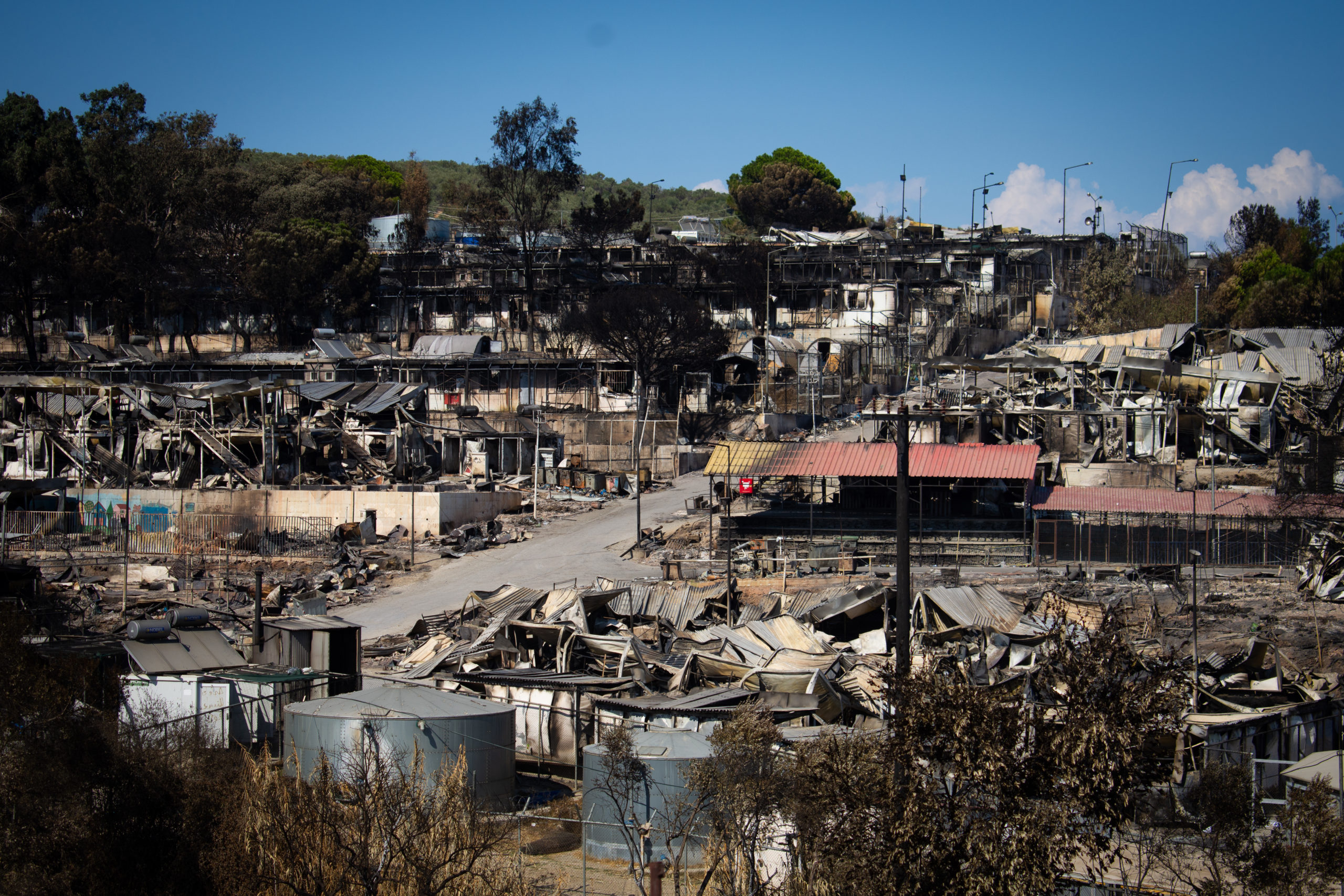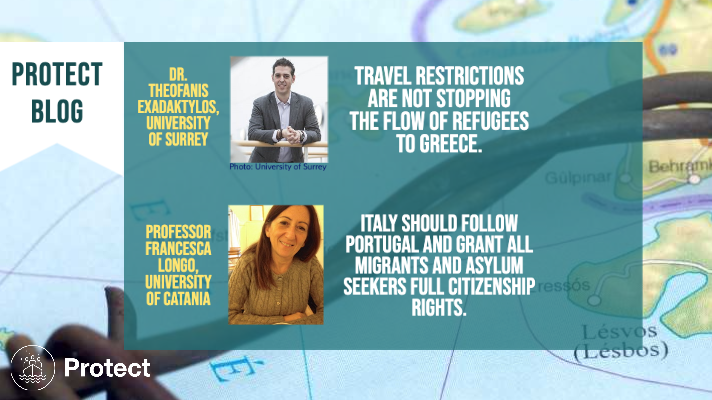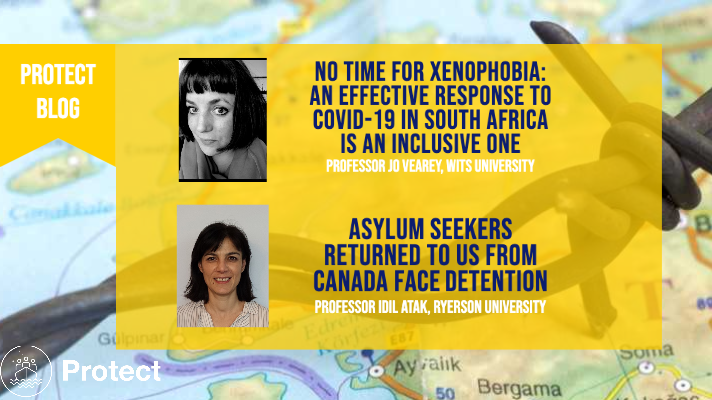
Disaster Foretold: Refugees in Moria at risk after fires. What now, EU?
By Theofanis Exadaktylos and Evgenia Iliadou. Photo: Photo Yousif Al Shewaili / Oxfam
As much as the Greek state tries to present the fire and misery that unfolded as an unpredictable event and a state of emergency, this disaster was preventable, foreseeable and, therefore, foretold and avoidable. It is the outcome of a series of inadequate and patchy political decisions as well as the largely exclusionary, discriminatory and deterrent policies that have been implemented within and beyond the EU’s borders. And while the Greek government has frequently sounded the alarm at the EU-level, the wave of populism and the surge of the far-right across Europe in the past decade have largely closed the EU’s ears and eyes to the problems.
In the early hours of 9 September 2020 the island of Lesvos was placed in a state of emergency for four months by the Greek government following the fire that broke out and destroyed large sectors of the hotspot (camp) of Moria.
Given the large-scale destruction of accommodation units, people residing in Moria have been forced to sleep rough.
The Moria camp is the largest formal refugee accommodation structure on the island of Lesvos. There are currently more than 13,000 people – including 4,000 children, 407 unaccompanied children, pregnant women and elderly people – living in overcrowded, inhumane, appalling and degrading conditions within and around its main facilities.
The fires took place after the recent announcements of the Greek government to build closed facilities for refugees on the island. Although the incident may have happened as a result of arson caused by refugees it brings out the many shortcomings, longer-term problems and insufficient decision-making by the Greek government and the European Union.
Unfortunately, repression, instead of care and protection, was the immediate response response of the Greek state: Two police blockades were deployed near Moria to prevent refugees from moving from Moria hotspot to the island’s capital, Mytilini. Riot police has been requested to come from Athens in order to assist with the situation on Lesvos.
As the situation has been unfolding since the early hours of 9 September, local far-right groups have been reported to be attacking refugees and at the same time local residents have been reported shouting at refuges “Burn them alive! Shoot them” also demanding closed facilities on the island.
The fire at Moria hotspot cannot be seen as an isolated event or as an extraordinary state of emergency. Fires and other disastrous, fatal and/or violent events have routinely and continuously taken place on site.
Many practitioners from international NGOs, such as Médecins Sans Frontières, frequently point out that Moria was ‘a time bomb that finally exploded. People had been kept in inhumane conditions at the site for years.’
As much as the Greek state tries to present the fire and misery that unfolded as an unpredictable event and a state of emergency, this disaster was preventable, foreseeable and, therefore, foretold and avoidable. It is the outcome of a series of inadequate and patchy political decisions as well as the largely exclusionary, discriminatory and deterrent policies that have been implemented within and beyond the EU’s borders.
And while the Greek government has frequently sounded the alarm at the EU-level, the wave of populism and the surge of the far-right across Europe in the past decade have largely closed the EU’s ears and eyes to the problems.
The Greek government has announced a series of quick patches to problem, including the transportation of 400 unaccompanied children to the mainland, and the immediate housing on ships of the most vulnerable. However, such measures will not solve the longer-term issues of refugee accommodation on the island.
Related blogs:


Facts: Moria fires and the Covid-19 outbreak
According to early reports from Lesvos, the Moria fires broke out after scuffles between camp residents who had been found to be Covid-19 positive.
While the early reports point to arson by refugees groups, the reasons behind the fire are still unclear and under investigation.
Following a series of confirmed Covid-19 cases in Moria, the whole site has been placed under quarantine restrictions for September.
The recent spike in Covid-19 cases has also meant that Lesvos is already on the travel quarantine list for many EU countries including most recently, the UK and the Netherlands.
While there are strict protocols issued by the Greek government on how to tackle coronavirus outbreaks in refugee sites, the overcrowding at Moria meant that control of the quarantine was hard to monitor, including convincing residents to self-isolate, and the facilities have been limited.
As residents fled the camp seeking alternative refuge, among them the 35 Covid-19 cases, there were concerns about the spread of the virus.
